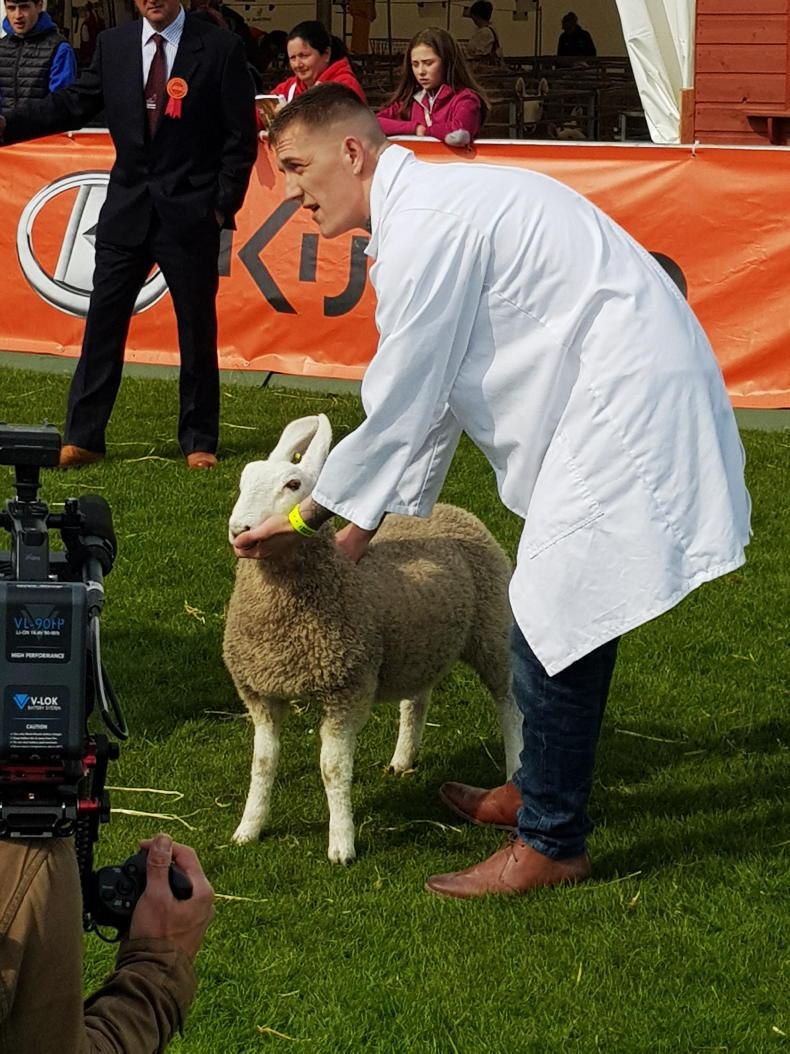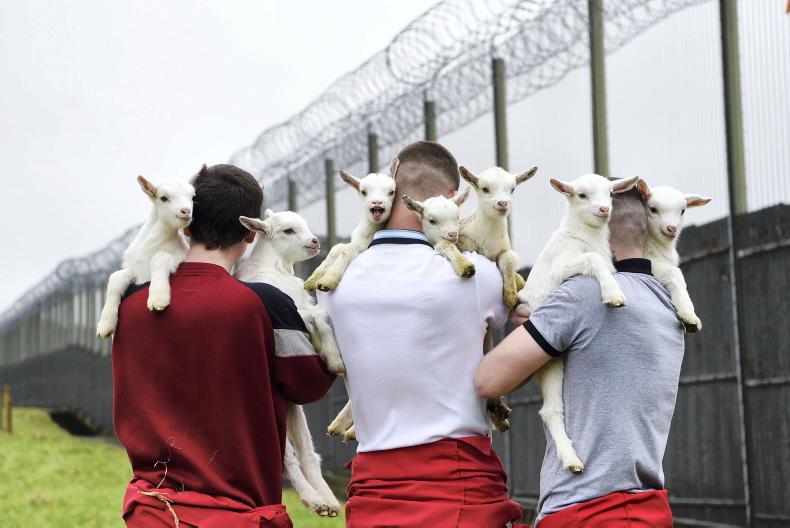The introduction of Border Leicester sheep as part of a rehabilitation programme for young offenders in Northern Ireland has been credited as working miracles for the young men’s self-esteem.
Initiated by Northern Ireland Prison Service, sheep were introduced to Hydebank Wood College by vocational training officer and part-time sheep farmer Richard Graham and senior officer of workshops and education Michéle McElnea.
Many of the young men in here are fathers and it is incredible how this experience of being responsible for another life has prepared them for fatherhood
They were inspired by the positive results they saw with young offenders and their horticulture experiences in the prison and wanted to extend that experience into livestock.
Richard’s father founded the Border Leicester Tully Vallen Flock and they were the natural breed of choice.

Border Leicester sheep having its hair done before a big show.
A ram, two ewe lambs and two aged lambs were purchased in 2016 and, since then, the young offenders have successfully competed at Balmoral Show and lambed their ewes within the prison grounds.
“It’s hard to believe that there are young men in here who had never seen a live farm animal before.
"All of a sudden, they are getting the chance to work with them and compete at a prestigious agricultural show,” Richard said.
The prison runs NVQ level qualifications but feels the impact the sheep have had goes far beyond certificates.
“Many of the young men in here are fathers and it is incredible how this experience of being responsible for another life has prepared them for fatherhood.
"Also, our appearance at Balmoral Show led to a young man being offered an agricultural job, due to the knowledge and experience that he has developed,” added Michéle.

Border Leicester sheep from the prison being shown at Balmoral.
Richard said he wanted to thank all the staff and governors for supporting the initiative and hopes it will inspire other institutes with grassland to consider introducing sheep into their facility.
“On average, we have delivered experience of working with Border Leicesters to 50 young men.
"This is not only increasing awareness of the breed, but creates possibilities of new breeders and new gene pools. People generate ideas and enthusiasm – something that the Borders have certainly helped us achieve here,” concluded Richard.
The introduction of Border Leicester sheep as part of a rehabilitation programme for young offenders in Northern Ireland has been credited as working miracles for the young men’s self-esteem.
Initiated by Northern Ireland Prison Service, sheep were introduced to Hydebank Wood College by vocational training officer and part-time sheep farmer Richard Graham and senior officer of workshops and education Michéle McElnea.
Many of the young men in here are fathers and it is incredible how this experience of being responsible for another life has prepared them for fatherhood
They were inspired by the positive results they saw with young offenders and their horticulture experiences in the prison and wanted to extend that experience into livestock.
Richard’s father founded the Border Leicester Tully Vallen Flock and they were the natural breed of choice.

Border Leicester sheep having its hair done before a big show.
A ram, two ewe lambs and two aged lambs were purchased in 2016 and, since then, the young offenders have successfully competed at Balmoral Show and lambed their ewes within the prison grounds.
“It’s hard to believe that there are young men in here who had never seen a live farm animal before.
"All of a sudden, they are getting the chance to work with them and compete at a prestigious agricultural show,” Richard said.
The prison runs NVQ level qualifications but feels the impact the sheep have had goes far beyond certificates.
“Many of the young men in here are fathers and it is incredible how this experience of being responsible for another life has prepared them for fatherhood.
"Also, our appearance at Balmoral Show led to a young man being offered an agricultural job, due to the knowledge and experience that he has developed,” added Michéle.

Border Leicester sheep from the prison being shown at Balmoral.
Richard said he wanted to thank all the staff and governors for supporting the initiative and hopes it will inspire other institutes with grassland to consider introducing sheep into their facility.
“On average, we have delivered experience of working with Border Leicesters to 50 young men.
"This is not only increasing awareness of the breed, but creates possibilities of new breeders and new gene pools. People generate ideas and enthusiasm – something that the Borders have certainly helped us achieve here,” concluded Richard.








 This is a subscriber-only article
This is a subscriber-only article










SHARING OPTIONS: